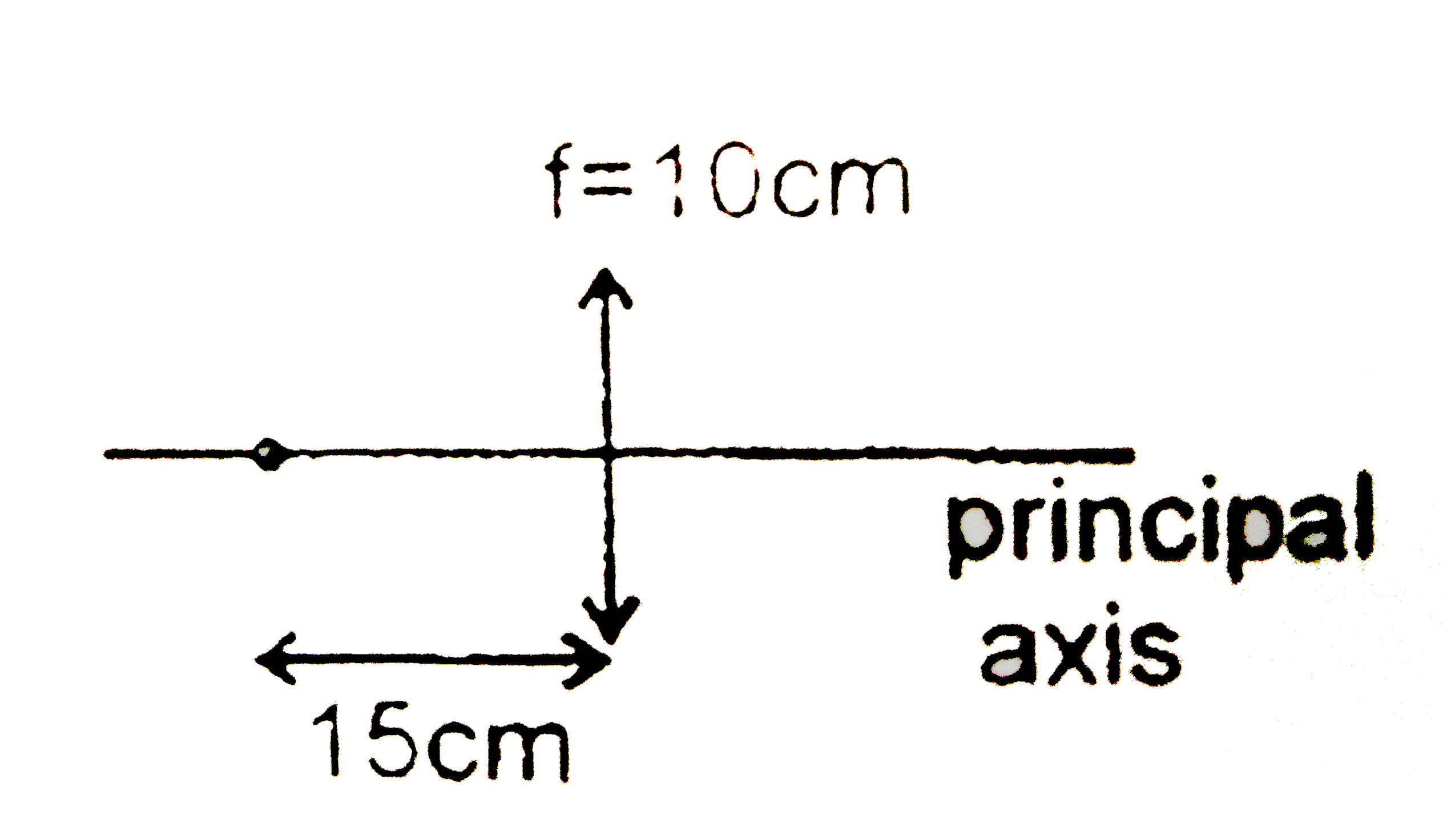Which of the following statements is/are always true regarding a converging lens?
I. When the object approaches the focal point from the converging lens, then the size of the image increases.
II. The image formed by a thick converging lens is brighter to that formed by a thin converging lens.
III. When the object is placed very far away from the lens, the image distance approaches focal length.
I and II only
I and III only
I, II and III
III only
The correct Answer is:D
To determine which statements regarding a converging lens are always true, we will analyze each statement one by one.
Step 1: Analyze Statement I
Statement I: When the object approaches the focal point from the converging lens, then the size of the image increases.
- As an object moves closer to the focal point of a converging lens, the image formed moves further away from the lens and becomes larger. This is due to the lens formula and the magnification formula, which indicate that as the object distance decreases (approaching the focal point), the image distance increases, leading to an increase in the size of the image.
Conclusion for Statement I: True.
Step 2: Analyze Statement II
Statement II: The image formed by a thick converging lens is brighter than that formed by a thin converging lens.
- The brightness of an image formed by a lens depends on the amount of light that passes through it and the area of the image. A thicker lens may have a larger aperture, allowing more light to pass through, but it can also introduce more aberrations that may affect brightness. However, in general optics, it is not a definitive rule that a thick lens always produces a brighter image than a thin lens.
Conclusion for Statement II: Not always true.
Step 3: Analyze Statement III
Statement III: When the object is placed very far away from the lens, the image distance approaches the focal length.
- When an object is placed at a very large distance (theoretically at infinity), the rays of light coming from the object are nearly parallel. For a converging lens, these parallel rays converge at the focal point. Thus, the image formed will be at the focal point of the lens.
Conclusion for Statement III: True.
Final Conclusion
- Statement I: True
- Statement II: Not always true
- Statement III: True
Thus, the statements that are always true regarding a converging lens are I and III.
Statement I: When the object approaches the focal point from the converging lens, then the size of the image increases.
Statement II: The image formed by a thick converging lens is brighter than that formed by a thin converging lens.
Statement III: When the object is placed very far away from the lens, the image distance approaches the focal length.
- Statement I: True
- Statement II: Not always true
- Statement III: True
Topper's Solved these Questions
- NSO QUESTION PAPER 2019-20 SET BBOOK - SCIENCE OLYMPIAD FOUNDATION CHAPTER - NSO QUESTION PAPER 2019-20 SET BEXERCISE - ACHIEVERS SECTION
2 Videos
- NSO QUESTION PAPER 2019-20 SET ABOOK - SCIENCE OLYMPIAD FOUNDATION CHAPTER - NSO QUESTION PAPER 2019-20 SET AEXERCISE - ACHIEVERS SECTION
2 Videos
- NSO QUESTION PAPER 2020-21 SET ABOOK - SCIENCE OLYMPIAD FOUNDATION CHAPTER - NSO QUESTION PAPER 2020-21 SET AEXERCISE - SCIENCE
18 Videos
Similar Questions
Knowledge Check
When the object is moved slightly closer to a converging lens, the image may
AIncrease in size and move closer to the lensBIncrease in size and move farther away from the lensCDecrease in size and move closer to the lensDDecrease in size and move farther away from the lensA converging lens can from a virtual image if the object is placed
ABetween the lens and its focusBAt the focus of the lensCBetween f and 2fDAt infinityAs an object gets closer to the focal point of a converging lens from infinity its image
Abecomes smallerBremains of the same sizeCgets farther from the lensDgets closer to the lens
The same size images are formed by a convex lens when the object is placed at 20cm or at 10cm from the lens. The focal length of convex lens is ____ cm
View SolutionAs an object is moved from the surface of a thin converging lens to a focal point, over what range does the image distance very?
View SolutionWhere should an object be placed in front of a convex lens so as to obtain its real, inverted and magnified image?
View SolutionWhere must an object be placed in front of a converging lens so that the image formed may be
upright and enlarged
View SolutionIf the image formed by a convex lens is of the same size as that of the object, what is the position of the image with respect to the lens?
View Solution

